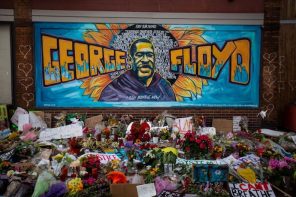The recent decision by US Attorney General, Eric Holder—that five Guantanamo detainees believed to have masterminded the 9/11 attacks will be brought to the US to be tried in a non-military court in lower Manhattan—has raised cries of outrage from many quarters. Here is yet another complex contemporary issue that does not seem to break down neatly according to the old logic of “liberal and conservative” politics.
Some object to the decision not to try the five in military tribunals instead. Some object to the symbolism of bringing the men onto US soil. Others embrace the symbolism of trying the five in lower Manhattan, in the symbolic shadow of Ground Zero. Some worry that this cannot serve as anything other than a show-trial, whose outcome is already clear; the idea is that this decision would never have been rendered were the Attorney General in any doubt about the final outcome.
Others worry that the outcome is far from clear, and that the problematic use of water-boarding and other interrogation techniques to which these men were subjected will put the Guantanamo Bay facility on trial every bit as much as the alleged 9/11 organizers will be. I myself worry that the decision to seek the death penalty in these cases will only ensure that the proceedings and the cycle of appeals drag on for years longer than they would otherwise, carrying the very real potential of turning these men into martyrs rather than subjects to a rule of international law. And so on.
Perhaps the most telling objection was voiced by David Brooks on The PBS NewsHour with Jim Lehrer. He argued that the symbolics of the move carry real policy consequences. Brooks expressed surprise and dismay that the US Attorney General referred to the 9/11 attacks repeatedly as “crimes.” No, Brooks countered, they were not “crimes,” they were “acts of war,” and we ought never forget that.
Brooks is correct about the significance of the nomenclature, the categories we use to describe events. But I think he flubs the conclusion. Eric Holder’s language was very deliberate. His Commander-in-Chief has authored and authorized the same shift in terminology. The Bush administration concluded within 24 hours of the 9/11 attacks that these amounted to “acts of war,” and subsequently launched the nation on its “war against terror.” The problematic implications of this decision—made in anger, and not noticed by a populace still caught up in a mixture of shock and grief—are more obvious today.
According to the Just War tradition—a tradition to which all branches of the US Armed Services claim allegiance—wars must be declared by sovereign political entities, identify enemies clearly, possess clear goals that will enable the swift cessation of hostilities, be waged proportionally to both the threat-level and the desired outcome, and clearly distinguish enemy combatants from non-combatants. A vague and elusive “war against terror” fails to meet most of those criteria. The very vagary of the term ‘terrorist’ suggests that a war on terror will be a perpetual war, since there is no recognizable political entity with which you might negotiate a cessation of hostilities.
A war against HAMAS, perhaps; a war against “terror,” no.
It is the position of the Obama administration that the 9/11 attacks, like all terrorist attacks, are better thought of as crimes, not acts of war. This does not make them any less horrible or outrageous, nor does it render us less determined in finding and punishing those responsible for them. But the means with which we battle international crime are different than those we apply to acts of war. We do not, or at least we should not, declare wars on crime. There are profound and unintended consequences to the deployment of such language.
This seems less a conservative or liberal distinction than it does a religious one. The roots of the Just War tradition lie in old Roman as inflected by Late Antique and medieval Christianity, then semi-secularized in the Enlightenment. The tradition is designed to minimize the damage done to human beings in time of war.
This may well be why the president is taking so long to commit himself to a new strategy in Afghanistan. He is trying to re-imagine what that war is about, against whom it is being waged, and what its new purposes are, once we stop imagining it as “the latest front in a global war on terror.”
That requires imagination, as well as determination and strength of purpose. This Guantanamo decision is thus perhaps the first step toward the announcement of this new vision, the vision for a war the President intends to bring to a reasonable and just conclusion.



